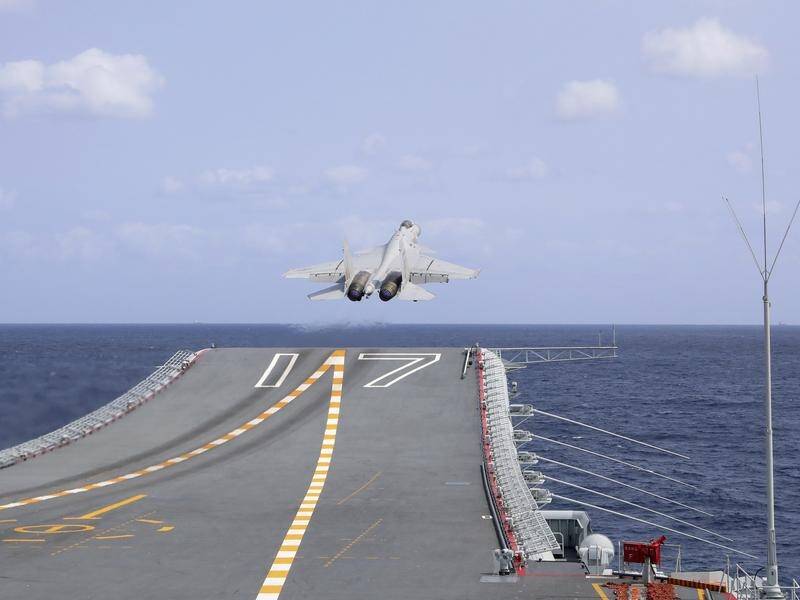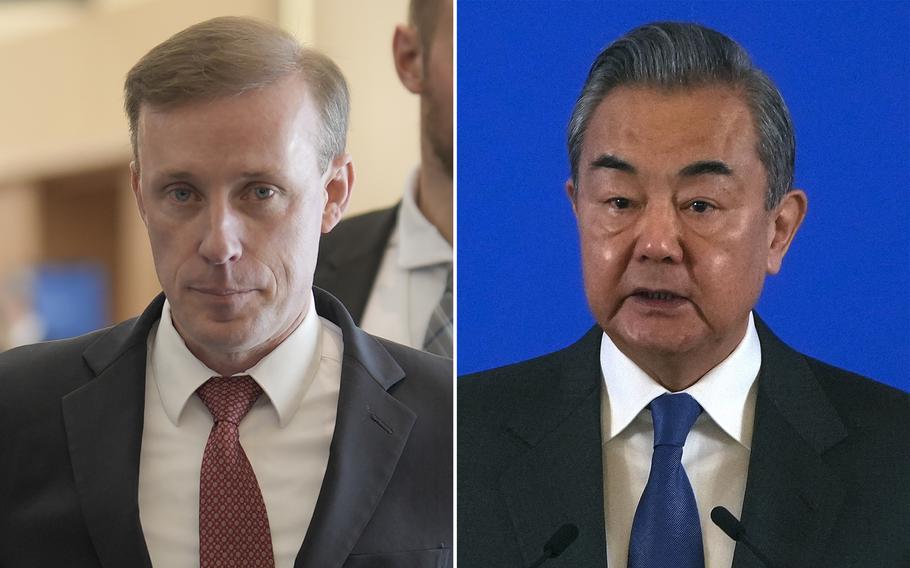China has sent over 30 airplanes and naval ships to Taiwan, escalating tensions.

Beijing’s Warning to US Ally: ‘China Will Not Allow It’ (Photo: Google)
PLA’s Provocative Maneuvers Around Taiwan Coincide with US-China Talks Announcement
US-China talks about the action following the news that the officials would meet in Bangkok to resolve longstanding concerns and reduce geopolitical tensions.
Between 6 a.m. on Friday and Saturday, the PLA dispatched 33 aircraft, including SU-30 fighters, and six naval vessels surrounding Taiwan. In particular, 13 aircraft breached the Taiwan Strait’s midline, an unofficial barrier between the self-governing island and mainland China. Taiwan’s military ministry carefully watched the situation and sent its soldiers in response to provocations.
As Taiwan chose Lai Ching-te as president, China’s assertiveness reflects its unhappiness with political events. Lai’s Democratic Progressive Party advocated self-determination, social fairness, and rejection of China’s threats. Six Chinese balloons overflighting the island or its airspace raised tensions.
READ ALSO: China Proposes International Conference For Gaza Peace Amid US-Israel War Stance
Sullivan and Wang Yi Navigate US-China Talks Amidst Rising Taiwan Strait Tensions
In Bangkok, U.S. national security advisor Jake Sullivan and Chinese Foreign Minister Wang Yi are meeting. The time of their meeting is unknown, but it is part of a larger effort to maintain strategic contact and manage the bilateral relationship. After their November conference, U.S. President Joe Biden and Chinese President Xi Jinping maintained their promise.
In these meetings, Foreign Minister Wang is likely to discuss China’s stance on Taiwan, U.S.-China talks ties and international and regional issues. Both states are concerned about rising Red Sea tensions, notably Houthi rebels’ missile assaults on foreign ships disrupting global commerce. China asserts good de-escalation measures.
As military posturing in the Taiwan Strait escalates, U.S.-China talks and diplomatic discussions become more important in determining regional geopolitics. The world watches as the two superpowers resolve complicated problems like Taiwan that might affect commerce and stability.
READ ALSO: House Panel Delves Into Key Player Mervyn Yan’s Role In Hunter Biden’s Business Venture With CEFC China Energy

















































